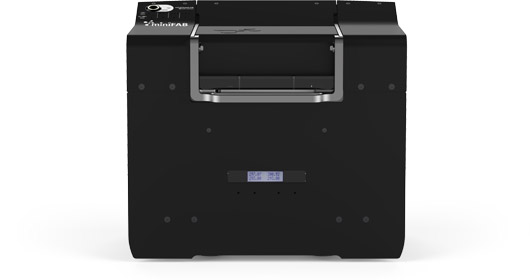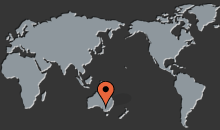Working With MiniFAB
A Highly Skilled Team that Listen and Address Your Needs and Requirements

Engagement Process Working with MiniFAB means getting started fast
Flexible Engagement Model
Our flexible engagement model, strong team and cutting-edge facilities mean that no project is too small or too big. MiniFAB welcomes projects of all sizes and can provide clients with micro-parts and micro-tooling for design evaluation, one-off projects, feasibility studies, and prototype production, through to high-volume OEM and ODM manufacturing.
By quickly building a strong understanding of your specific needs and requirements, our team of experts can develop a detailed cost-modeling, create prototypes, and generate manufacturing strategies. Based on client needs, we can manufacture as many or as few of your product as required. Alternatively we can transfer manufacturing processes to you or your partners.
We routinely work with other partners from around the world to bring in additional technologies or expertise to complement our own, ensuring that the solution we provide creates unique value.
Our flexible engagement model is designed to allow you to engage with us at any point, depending on your development and commercialisation progress.
MiniFAB's Advantages
- Flexible fee-for-service model or joint development partnership
- Developed product IP is owned by our clients
- Unique and customised designs and solutions through strong collaboration
- In-house manufacturing of your product
- Flexible business model with a team that is easy to work with and very open
- Seamlessly coordinate instrument and cartridge development


Rigorous Project Management
MiniFAB's five-step development model is tuned to efficient delivery of microfluid products. By working through a process of technical risk reduction we move from concepts to manufactured products in a stage-gated process that delivers investor value at each step. Our clients collaborate with us through the entire process, or you can pick and choose the modules that best fit your needs and budget. We provide the required regulatory documentation as per ISO 13485 or 21 CFR 820.30 at each stage of development.
Stage 0 Product definition and concept design
Diligent product definition and pre-development planning are key to cost & time efficient product development
- Analysis of system requirements
- Identification of user requirements & product specifications
- Analysis of market environment, development of a product roadmap
- Analysis of regulatory environment (e.g. FDA 510(k), CLIA waiver)
- Analysis of product use case(s)
- Functional design of system and assay using our Microfluidic ToolBox
- Cartridge and instrument concept generation (including rapid prototype fabrication)
- System interface definition
- Technical input for intellectual property assessment
- Design & development risk watch list
- Development schedule & expenditure planning
- Technical feasibilities document
Stage 1 Proof of Principle for Critical Process Steps
Rigorously isolate and test all functional elements
- Investigate potential process simplifications
- Identify & test candidate materials for cartridge, select suitable materials
- Identify critical process steps
- Preliminary interface specifications between cartridge & test beds/instruments
- Design & manufacture microfluidic chips for proof-of-principle, test critical process steps
- Set up microfluidic test bed & test proof-of-principle chips
- Design & manufacture proof-of-principle test beds for critical instrument functions
- Proof-of-principle for instrument functions
- Cartridge manufacturing strategy & cost modelling
- Risk and harm assessment
Stage 2 Concept demonstration
Test integrated system functionality
- Integration of all elements from proof-of-principle stage into cartridge design (resembles product)
- Design interface between instrument and cartridge
- Manufacture & test of prototype cartridge(s) with prototyping techniques
- Initial performance variation testing, test interfaces (electrical, fluidic, mechanical, thermal, optical)
- Design iteration of cartridge (if required)
- Design freeze for cartridge-instrument interface with further changes handled under change control processes
- Manufacture 10s-100s of concept demonstration prototype units using prototyping techniques (e.g. milling, laser cutting, molding and others)
- Build concept demonstration prototype instrument
- Test Concept Demonstration Prototype (CDP) cartridges in CDP instrument
Stage 3 Establishment of manufacturing processes
Alpha pre-production units for preclinical tests
- Design & establish manufacturing process
- Repeatably Manufacture 1000s of alpha units using volume manufacturing (replication) techniques
- Statistically significant performance variation testing (C.V. testing)
- Eliminate manufacturing process variation (e.g. polymer shrinkage, warpage, component misalignment)
- Manufacture alpha devices for pre-clinical tests
- Develop manufacturing run sheets and standard operating procedures
- Assemble Design History File
Stage 4 Ramp up of manufacturing processes
Beta production units for clinical trials, transferring to full manufacture
- Manufacturing process optimisation and qualification
- Capacity ramp-up
- Establish & implement in-line quality control
- Assembly automation as required
- Yield improvement
- Update Design History File
- Manufacture of product for clinical trials with manufacturing techniques capable of cost-effective ramp-up
- Preparation of Device Master Record
Getting Started What if Microfluidic Product Development was simple?
Cost Modelling
MiniFAB works with your development team to make design-for-manufacture decisions. Formulating an initial manufacturing plan and cost model allows a robust evaluation of cost impacts, sensitivities, volumes and prices.
Throughout the program we investigate different scenarios to explore model sensitivities. MiniFAB has expertise in exploring process-enabled production line balancing to address issues of capacity and impact of automation versus manual processing.
This initial exploration enables critical early manufacturing development, and thus allows MiniFAB, in partnership with you, to develop risk mitigation strategies that save time and money.
Sandbox
Many of our clients have multiple product concepts, ideas or applications. The MiniFAB Sandbox Program is designed to assist you in evaluating early-stage opportunities.
In this program, you work with a team of our experts to brainstorm a variety of concepts. Based on understandings of cost, manufacturability and speed to market, MiniFAB review and make recommendations on opportunities most likely to succeed.
Prototype Feasibilities
You may already have a design in mind. A rapid prototype will allow you to explore its technical feasibility. MiniFAB offers a design and fabrication service that utilises our rapid prototyping techniques to deliver units to you for testing and evaluation.
MiniFAB's extensive range of fabrication processes and techniques can be accessed individually or in any combination required to convert concepts and designs into reality.
Product Requirements and Definition Analysis
Even at very early stages in the product development process, MiniFAB can work with you to help define, scope and identify product opportunities and strategies. Activities include: product requirements definition and analysis; risk identification and mitigation strategies; system conceptual designs and work-flow/user case scenarios.
Customers & Markets




Global
Whether you're in the next city or across the world, our expert staff will rapidly work to understand your needs and partner with your team to generate a unique, custom solution. MiniFAB has satellite offices in the EU and USA to better integrate with our customers across the globe.
Clients of all Types and Sizes
We pride ourselves on the breadth of our client base, which spans multinational industry leaders, start-ups, small to medium companies, universities and research organisations.
Start-up Ventures
Whether assisting to build the case for ventures still in capital raising mode or assisting companies that are spending on product development, MiniFAB has helped many new companies and ventures to get moving using our staged development plan.
Small to Medium Sized Enterprises (SMEs)
MiniFAB has helped companies developing new product lines or evolving existing products into new generations.
Large Multinational Corporations
As a valued open innovation partner, MiniFAB works with large corporations to unblock problems in development processes, provide platforms for new products and extend the capacity of in-house teams.
Government, Universities and Institutions
University and research teams from around the world have used MiniFAB's unique capabilities to provide specialist solutions for one-off problems. MiniFAB has worked with defense researchers to package sensors, with universities to deliver custom machining, and with governments to provide expert consultancy services.
Multi-sector
Our capabilities form a key enabling technology that has been applied across a range of business sectors including environmental monitoring, agriculture, aerospace, defense, security, food packaging and particularly in the diagnostics and medical device sectors.
- Point of Care Diagnostics: Immuno, protein, molecular and cellular
- Laboratory Diagnostics
- Sample Preparation and Handling: Blood, serum, sputum, urine, tears
- Medical Devices: Implants, patches, surgical tools
- Environmental Monitoring Systems: Water, agricultural, industrial plants
- Structural Monitoring Systems: Airframe, marine, civil
- Food Packaging: Modified Atmosphere Packaging, closures, perforation
- Micro-optics: Micro-lenses, holograms, gratings
- Microfluidic Systems:Mixers, valves, pumps, connectors, droplet generators,
Testimonials
"TearLab began with a very ambitious and difficult product design. After spending three years working with some of the largest and most heralded engineering firms in the world, it had become obvious that no company possessed an existing process that would be able to make our lab-on-a-chip device with the precision and tolerance we needed to be successful. Then, miraculously, we were introduced to MiniFAB.
"MiniFAB was able to solve complex manufacturing challenges that no other firm was even willing to try. We found that MiniFAB was not intimidated by the uncertainty that inevitably surrounds early stage development, as their process was very efficient and allowed a free exchange of ideas.
"MiniFAB features a management team that is as brilliant as they are curious, good-natured and filled with a boundless optimism (which is actually critical to success). It is truly a unique and exceptional team of people that work there. I cannot say enough good things or recommend them strongly enough, as they are amongst the very best in the world at what they do."
Benjamin Sullivan, Ph.D., Chief Scientific Officer - TearLab Corp.
"MiniFAB is a key partner for the Monash Vision Group, bringing a diverse range of technical, management and commercially strategic skills to the development of the 'direct to brain' bionic eye device. MiniFAB's knowledge of micro-fabrication processes, engineering capabilities, risk management and associated quality management systems has proved essential and has enabled the team to develop and prototype a clinically viable medical device that will ultimately be implanted in patients."
Dr Jeanette Pritchard, General Manager - Monash Vision Group
"We engaged MiniFAB's design-for-manufacture, fabrication and assembly expertise to assist us with our fluidic sensor cartridges based on our novel PeCOD™ technology.
MiniFAB manufactured and supplied the cartridges enabling us to perform our important site testing and evaluations leading to a successful global market release"
Dr Roger Knight, CEO - Aqua Diagnostic
FAQs Addressing your Frequently Asked Questions
Do you make microfluidics in glass?
No, MiniFAB specialises in microfabrication in polymer materials. We have found that this significantly reduces development time and cost without compromising functionality. Polymers are available to suit almost all optical, chemical and biological user requirements. We can incorporate glass elements into polymer systems – we call this hybrid packaging.
How can we work with you?
MiniFAB has numerous methods for engagement. Often the first step would be the creation of a mutual NDA to allow open confidential discussion of your specifications and needs.
Next, MiniFAB would design a program to suit your requirements. This may be a simple transfer of designs to a polymer manufacturing technique, a staged development program, early feasibility work, cost model analysis, concept generation, integration of functionality to an existing system and a whole lot more.
Do you offer a rapid prototyping service?
Yes, MiniFAB has a vast set of equipment for rapid prototyping.
Processes include micro milling, laser processes, lithography, lamination, electroforming, injection molding, solvent bonding, etc. Each of these processes allow for a rapid turnaround from design to fabrication and dispatch.
Do you have volume manufacturing capabilities?
Yes, MiniFAB specialises in volume manufacturing. Dedicated manufacturing lines are governed by ISO13485:2003 and ISO9001 standards in clean rooms built to ISO 7 standards (class 10,000). We have extensive expertise in warehousing and dispatch of products, even under specified storage conditions (e.g. cold chain).
I have a design already, can you fabricate my microfluidic design?
Yes, MiniFAB's engineering team will review designs with you, make recommendations to streamline the fabrication process and develop a quotation for transfer of your designs into prototype or production devices.
I have a biosensor, can you make a disposable diagnostic for me?
Yes, MiniFAB has a Clip Chip™ technology which allows easy and rapid integration and testing of various functional elements, including biosensors. Our engineers will develop the ideal solution for the integration of the biosensor with you, and allow you to test the fluidic functionality without long waiting times.
How much does it cost?
Costs vary between projects and programs and are often driven by the complexity of the solution required.
MiniFAB employs a rigorous cost modelling exercise early in the development program, which allows our clients to make informed decisions about materials, disposable cartridge, the instrument, capital expenditure, production volumes and labor.
In this way, our clients are able to determine the best development path to reach the market in the shortest possible time.
Can you assist in the development of regulatory required documentation necessary for taking a medical device or diagnostic through to market?
Yes, MiniFAB has a comprehensive Design Control strategy which governs design and development projects for products in the regulated markets.
Documentation is developed during the design and development stages to ensure a Design History File is available to you at the end of the project.
What regulatory standards do the Design Control procedures at MiniFAB comply with?
The Design Control procedures implemented at MiniFAB are designed to meet both ISO 13485:2003 and the FDA's Code of Federal Regulations 21 CFR 820.30.






